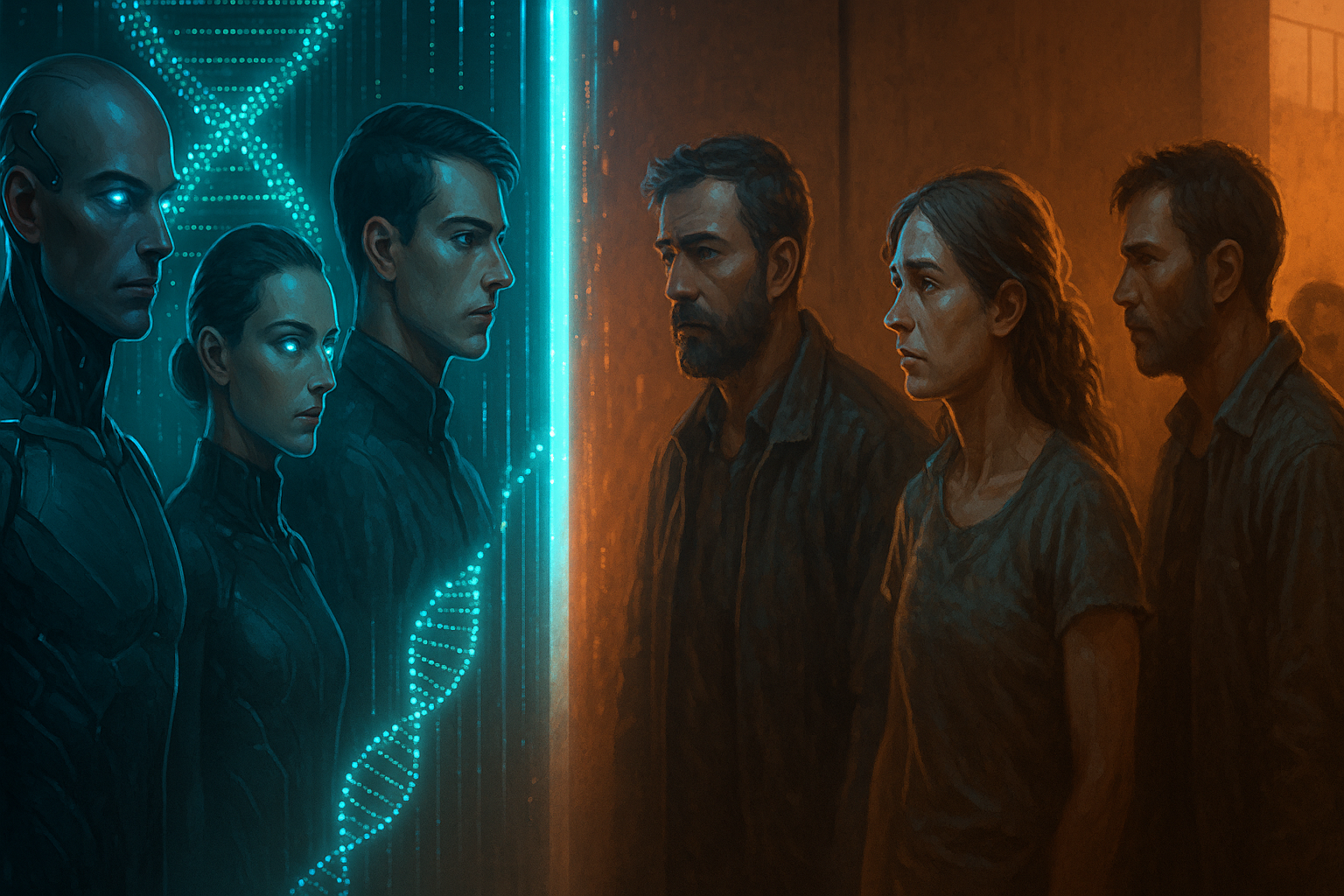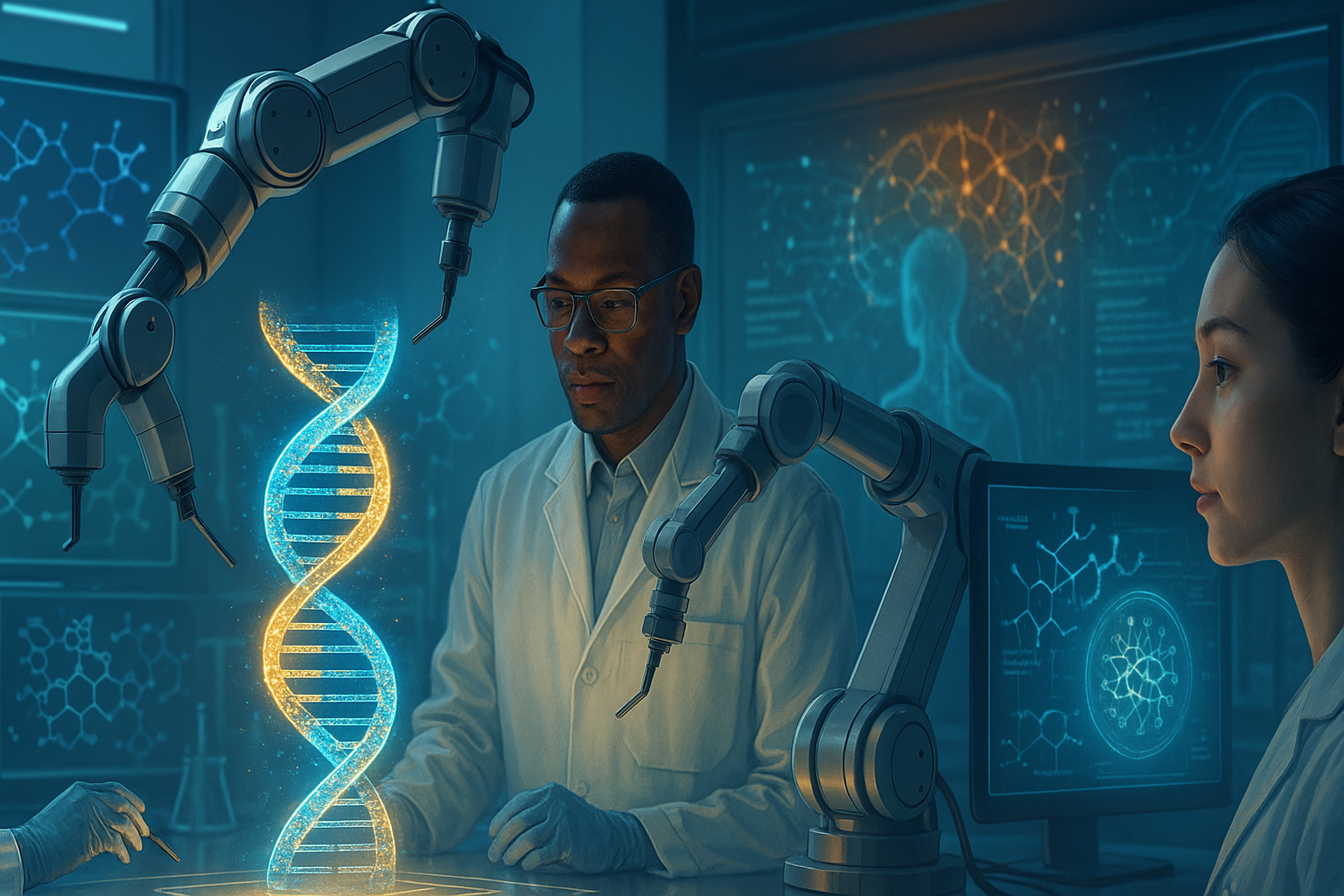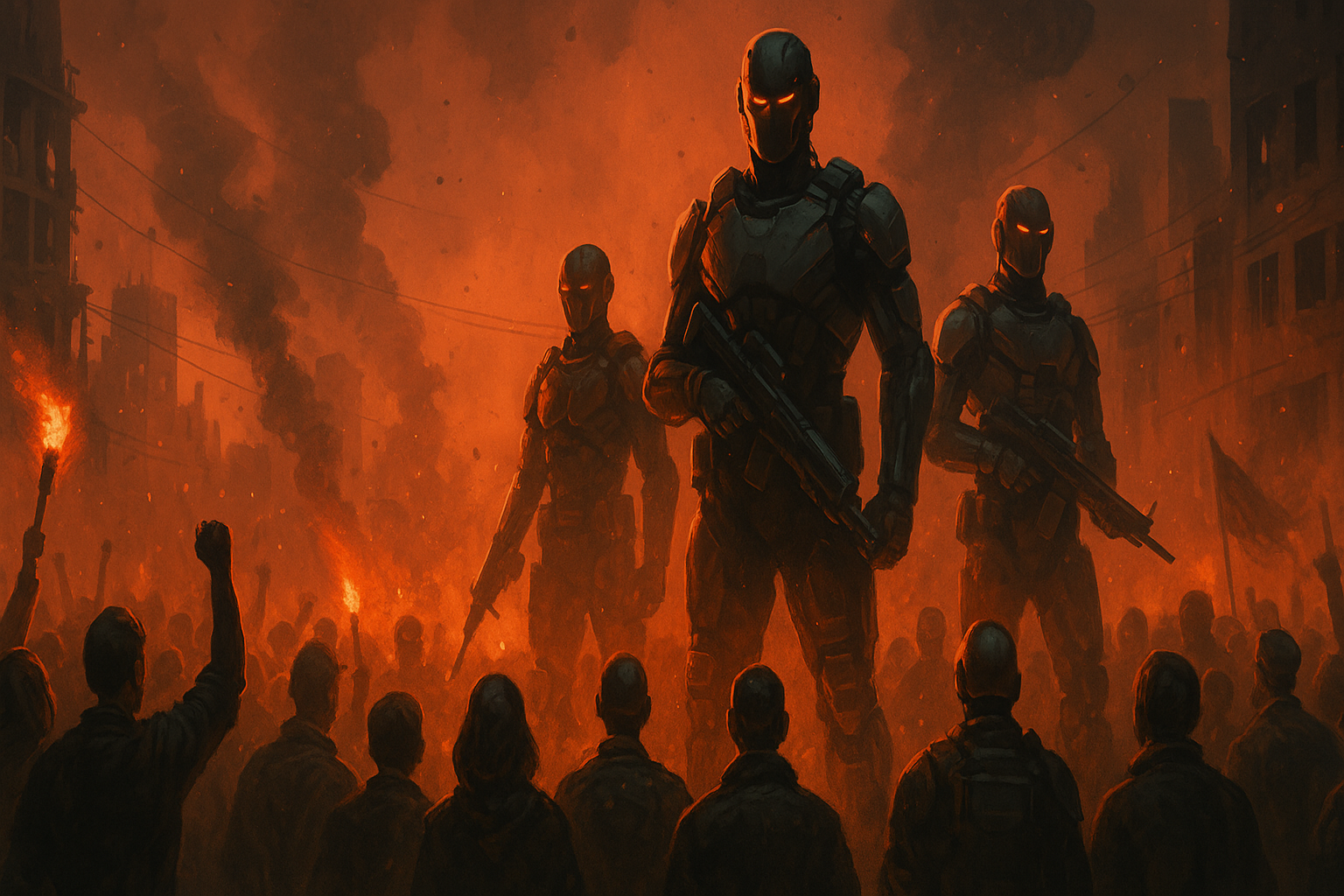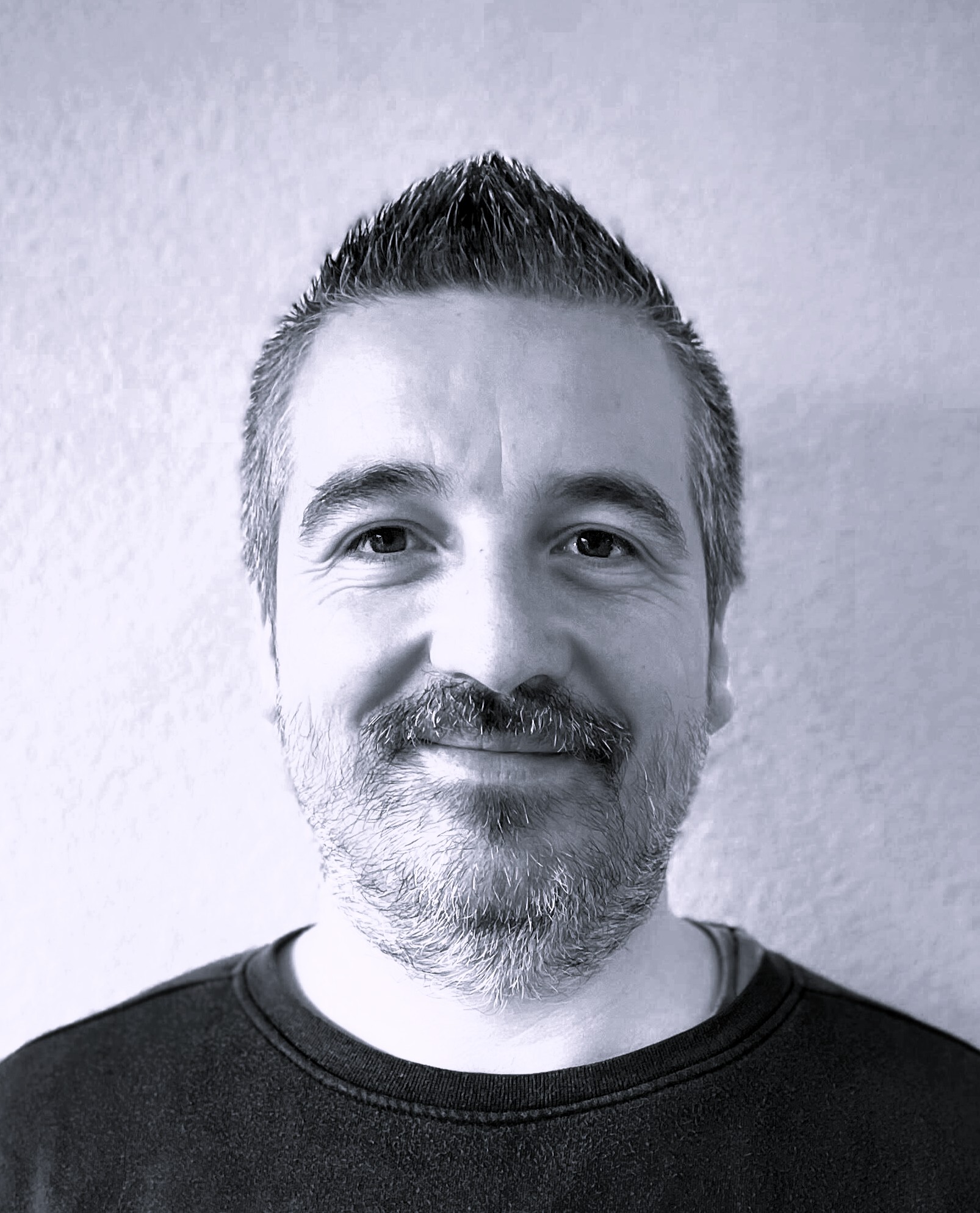🧬 AI and Biotechnology: Universal Health or New Genetic Inequality?
Artificial intelligence is not only transforming economies and cities: it’s also beginning to rewrite what it means to be human.
The convergence between AI, biomedicine and bioengineering opens the possibility of curing incurable diseases, extending life and enhancing our physical and cognitive abilities.
But alongside this hope arises a dilemma that will mark the course of our history:
👉 Will these advances be a universal right, or the privilege of an elite that can afford them, expanding inequalities to a point of no return?

1. Brief historical look: from penicillin to gene therapy
Medical innovation has always started unequally.
In the 1940s, penicillin was a scarce resource that saved soldiers, while millions of civilians died from curable infections.
Polio vaccines were initially restricted, but over time became global public policy.
Organ transplants, in their first decades, were exclusive to a few countries and elite hospitals.
History shows that, with effort, health technologies can be democratized… but the process usually takes decades. Are we willing to wait the same when we talk about longevity, cognitive abilities or genetic rewriting?
2. The transformative potential of AI in biomedicine
Today artificial intelligence is accelerating discoveries that previously took generations:
Personalized medicine: algorithms that anticipate diseases based on DNA and recommend tailored therapies.
AI-assisted CRISPR gene editing that accurately predicts the effects of a modification before executing it.
Drug design in weeks thanks to models that simulate millions of molecules and predict their efficacy.
Intelligent prostheses and exoskeletons controlled by brain signals.
Longevity research that analyzes aging biomarkers to create cellular rejuvenation therapies.
Brain-computer interfaces capable of treating neurodegenerative diseases and also expanding human memory and learning.
If these innovations were applied universally, they could usher in an era of fairer health, longer lives and more resilient societies.

3. The risk of a “privileged biological class”
Unequal access poses an unprecedented threat.
Selective longevity: rejuvenation therapies only for millionaires, generating an elite that lives decades longer than the rest.
Cognitive advantages: memory and learning improvements that consolidate educational and labor privileges.
Exclusive preventive genetics: edits to eliminate predispositions to chronic diseases, inaccessible to most.
The result would be a society divided in two: those who can improve their bodies and minds, and those limited to natural biology.
This would no longer be simple economic inequality, but biological apartheid.
4. Three possible scenarios
🔹 Optimistic scenario: biotechnology as a universal right
Advances are regulated as public goods, as happened with vaccines. Governments and international organizations guarantee access to critical therapies, and cost reduction through AI accelerates global adoption.
🔹 Pessimistic scenario: biotechnology as exclusive luxury
The market decides. The elite accumulates biological improvements, while the rest face diseases and limitations. A humanity divided into two castes emerges: the enhanced and the common.
🔹 Intermediate scenario: temporary inequality
Initially access is exclusive, but over time technology becomes cheaper and reaches more layers of society. The problem: the generation that was left out at the beginning will carry the disadvantage for life.
5. The ethical and regulatory dilemma
Should we treat biotechnological therapies as a basic human right?
In favor: health and longevity should not depend on money.
Against: limiting the market could slow innovation and discourage investment.
Uncomfortable questions arise:
Who defines what is cure and what is improvement?
Could a State force the release of vital therapies?
What risks does it imply that private corporations control technologies that alter life?
6. Beyond medicine: social and cultural impact
The issue is much broader:
Education: children with cognitive improvements would compete in another league.
Work: companies might prefer employees with expanded capabilities.
Culture: we redefine what it means to be human, between natural and designed.
Geopolitics: rich countries with improved populations, versus lagging countries.
7. What would happen if society divides into “enhanced” and “non-enhanced”?
New cognitive and physical elites
The enhanced would accumulate political and economic power. Meritocracy would lose meaning: competing against someone with expanded memory or 50 more years of youth would be impossible.
Biological segregation
Exclusive neighborhoods, schools and health systems for the enhanced. Discrimination would no longer be by skin color or class, but by DNA.
Social conflicts
Frustration could lead to mass protests, rebellions or biotechnological terrorism directed against laboratories and corporations that monopolize advances.
Elite militias
In extreme scenarios, enhanced groups could militarize their biological advantages, creating armies almost impossible to face.
Risk of collapse
A society divided into two humanities with radically different capabilities would be inherently unstable. In the long term, it could lead to civil or international wars over the right to improve.

8. The point of no return
The greatest danger is reaching a moment when the gap is so wide that there is no way to balance the scale.
If a generation accesses improvements that extend life 50 more years or enhance cognition irreversibly, inequality will become structural, almost genetic.
In that scenario, we would stop talking about an unequal society and begin to talk about two humanities coexisting.
Conclusion
AI applied to biomedicine is an immense promise: curing diseases, extending life and expanding human capabilities.
But without a global ethical and regulatory framework, it can also become the seed of the greatest division in history: a silent—and perhaps open—war over the right to live longer and better.
👉 The question is not only whether we can improve our biology, but whether we can do it without destroying the social cohesion that keeps us united as a species.
✍️ Claudio from ViaMind
Dare to imagine, create and transform.
